The Shimanto river is in southern Shikoku, the smallest of Japan's major islands, and because it lies far from any major city and remains undammed, Japanese say it’s one of the last, or the last, “clear” stream in the country. It’s also known as the site of one of Japan’s best-known road ultramarathons.
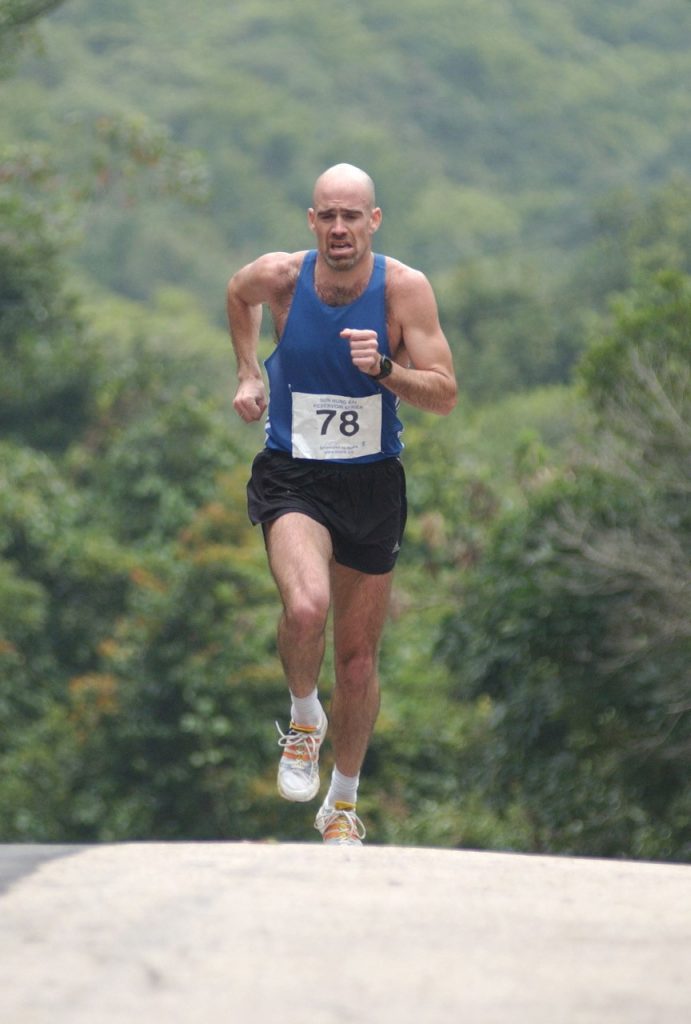
Some years ago, when I was living in Hong Kong, I decided to try my hand at the 100K distance, and I chose the River Shimanto Ultramarathon for my debut. I had run five or six sub-2:30 marathons, and completed a couple of Oxfam Trailwalker 100K team events, but I wanted to run a solo 100K on roads, and I hoped to break eight hours.
The River Shimanto Ultramarathon starts and finishes in the town of Nakamura, which is a seven-hour drive from Osaka's Kansai Airport, and a seven-hour drive back. Not readily accessible for foreigners, nor for Japanese, yet race organisers limit entries each year to 1,800 for the 100K and 600 for the accompanying 60K. The time limits are 14 hours for the 100K and 10 hours for the 60K.
Getting to the race start
The drive from the Osaka (Kansai) Airport to Shikoku was fabulous, and my training partner, Clive, and I broke it into two parts. On Friday afternoon we drove three hours to Awaji Island, arriving after dark to our small ryokan (inn) where we bathed (ah, Japan!) and sat down for a meal of seafood, seafood and more seafood. Oh yes, and beer. How fresh was the seafood, within 50 metres of the sea on this small Japanese island? This fresh: despite having been sliced into several dozen ready-to-eat pieces of sashimi, our artfully arranged red snapper was still gasping for air. No kidding.
The next morning, we awoke to weather as clear as a bell, went for a short pre-breakfast run, breakfasted and jumped into the car for another four hours driving. Arrived in Nakamura, we checked in at race headquarters before heading to our hotel for more seafood and beer. And in a nod to the next day's events, a bowl of rice.
Race day
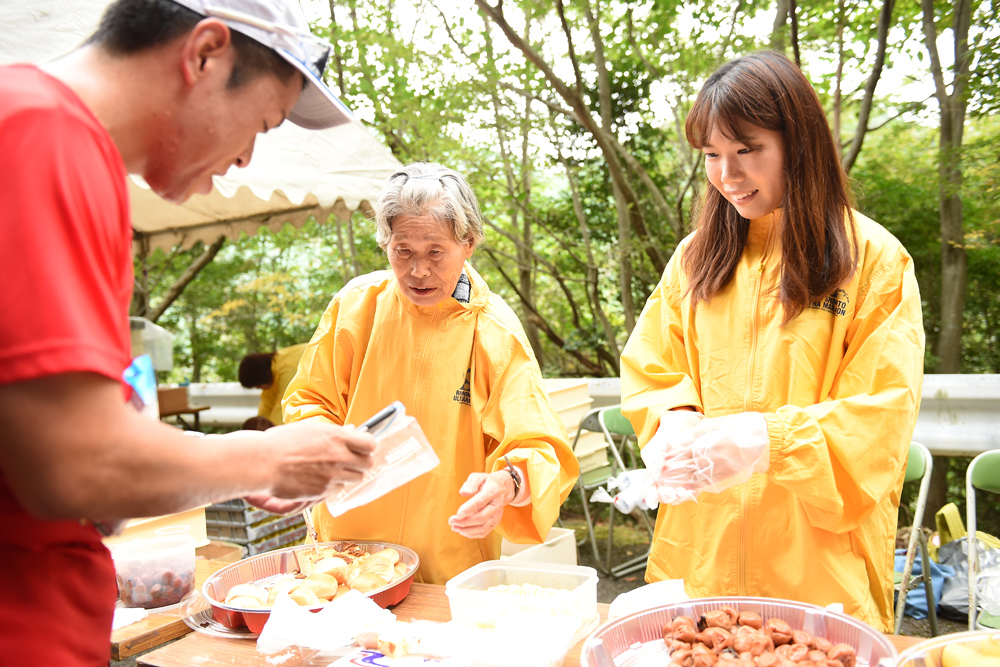
Up at 4:15 to tape, lube and jam a couple of Mr Donut's finest down our throats, we made it to the race start before 5:00, more than half an hour before the pre-dawn race start. Clive managed to use most of this time in a hunt for a toilet that didn't have a queue of 400 runners in front of it, returning minutes before the gun. He reported that the most time-consuming aspect of his quest was the removal and relacing of his Nike Prestos (remember, this is Japan) that bracketed his moments of solitude and contemplation in the sanitary facilities of a nearby school gymnasium.
Good feeling at the start, with none of the pushing and shoving found at so many race starts elsewhere. We got into conversation with another runner, a Japanese man nervous about impending debut over 100K, and wished one another luck before counting down to the gun, "San, ni, ichi!!!"
Don’t go out too fast!
In the dark Clive and I quickly separated according to our separate race plans – I was hoping to run 8 hours, and Clive hoped for 9:30. In the hour before dawn the road – a single-track through a forest and along a fast-moving river – was lit by volunteers' vehicle headlamps and generator-driven lamps; there were volunteers to cheer us on every 500 metres or so.

The Shimanto ultra is in part made a fantastic racing experience by 1,500 volunteers, who on our race day spent hours standing in unwarm rain, shouting "Gambatte kudasai!" to every runner as he or she passed. I perfected my ability to say "thank you" and "gambare-masu!" ["I'm trying my best!"] in Japanese. Comparing notes afterwards with Clive, we found that both of us had thanked or responded to every person (in addition to the volunteers, thousands of villagers and farmers turned out in the rain to cheer us on) along the route.
There's only one hill
Early in the race the rain hadn't started, and the first major obstacle we would face was a 650-metre hill that had occupied a not inconsiderable portion of my thoughts during my frankly inconsiderable amount of training. Work pressures had meant that for the preceding six months I had pretty much been running only twice a week, trying to cram in 20-30K on each of the weekend days, then doing nothing during the work week. Despite that foolhardy preparation, I had felt myself rounding into decent condition, and was reasonably confident of doing okay.
The hill was indeed 650 metres, but at a gradient I found relatively easy going after 12 years on Hong Kong's roads and trails. At the top the mist began to fall, and bombing down the other side I locked in with a Japanese runner I would see again many times during the race. The two of us ran downhill for nearly half an hour, it seemed, and shared a funny moment when passing a trailhead, both of us turned to gaze longingly down a pine needle-strewn path. Cheer up, boys, only seventy kilometres of macadam to go.
Taking it easy
I ran easily through the marathon in 3:27, in the top 30 overall I would guess, and I felt good about my chances. Through 50K not long after, the halfway point, and I recorded 4:06 on my watch, just where I wanted to be time-wise if I were to bag my 8:00. At this point however, I backed off just a touch, mindful that I had probably been running faster than 8:00 pace for at least half of the first 50K as I climbed the big hill.
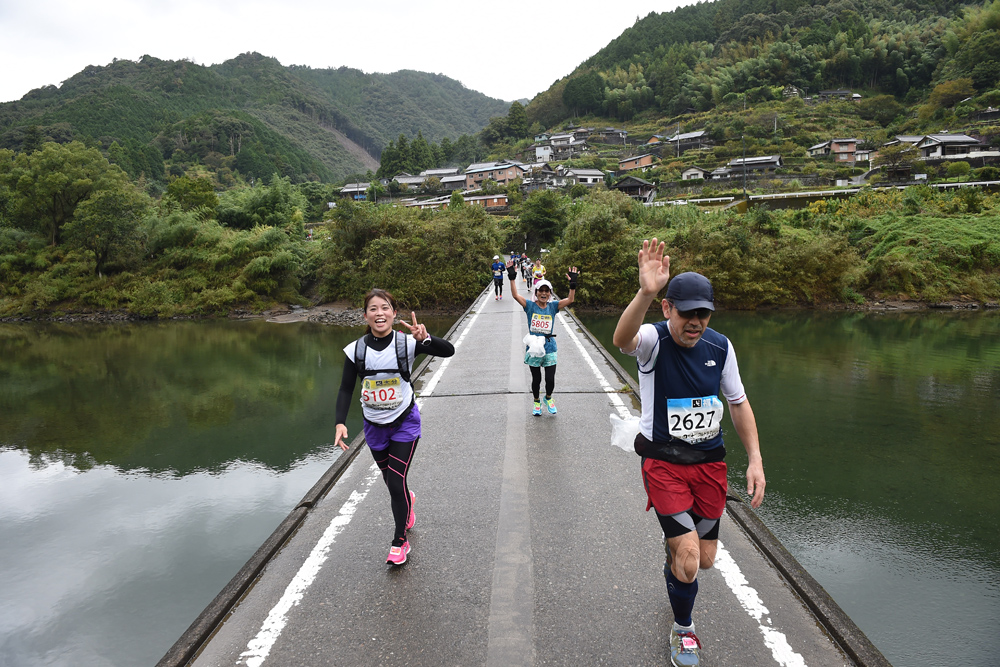
At 56K the race's second hill loomed, much shorter and sharper than The Big One, and I loafed up it, switching to a walk on one especially steep bit when walking seemed just as fast as "running". Over the top, I could see the main part of the Shimanto River, and across it, a major road. At the bottom, I got a (verbal) boost as well from a cute female volunteer, but had no time to pause for a chat.
At 62K runners could pick up a drop bag they arranged to be transported to that point, containing dry socks, a fresh top, more Vaseline, whatever. Clive and I had elected not to do that, and as I ran into the checkpoint I was greeted by the shouts of dozens of volunteers, encouraging me on my way. I looked left, saw the bag retrieval area and knew I didn't need anything from there. I looked right, saw the massage tent, and didn't need anything from there either.
Where it all went badly wrong
Where I didn't look at was the food table, nestling quietly at the end of the bag pickup zone. Ran right past it. didn't see it. Assumed, maybe, that food would be just around the corner. Oops.
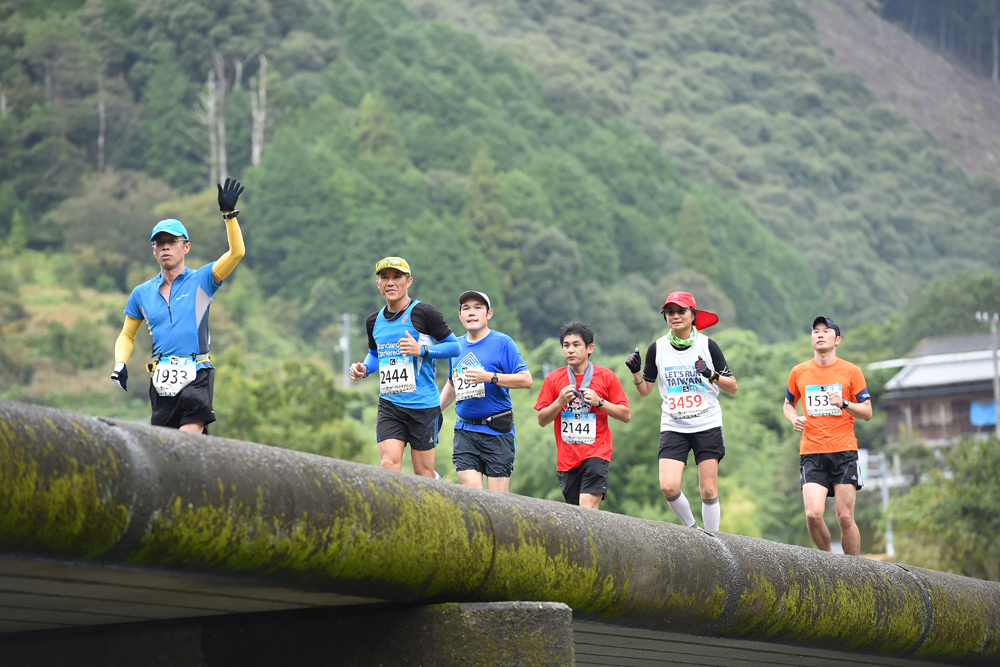
Running 100K, in eight hours or eighteen, you've got to eat whenever and wherever you can. I had been eating throughout the race after the first 25K, slurping Amino Vital (Japanese carb drink) at alternate water stops and occasionally munching pound cake and small cups of tangerine slices in syrup. [This was before energy gels were ubiquitous and every ultrarunner was a self-educated expert in endurance nutrition.] I was managing my food well, I thought, and I felt good.
Missing the food at 62K was a problem, but I figured there would be food at 65K, so I wasn't too worried. When I got to 65K, however, there was a problem. There was no food there, and not even any Amino Vital. I tossed down a cup of water and jogged out of the station, but a few hundred metres down the road I stopped to consider. I knew I needed food, and I guessed I wouldn't see any for at least another five kilometres. Should I go back to 62K? I thought about it, but I was in the top 15 at that point, and I didn’t want to give up however many places it would cost me to run an extra 6K. I decided to try to tough it out.
The bonk
Bad move. At 67K I "bonked". My body completely ran out of fuel, every cell drained of strength. I stopped, I sat on a guard-rail (the course at this point was along a single-track through the forest, with a guard rail separating the road from the river), I walked for 50 metres, jogged – if you could call it that – for 20. I sat down again. I carried on in this way for quite a long way. Some people passed me, but since I was pretty far up in the field I didn't see so many people. Every 500 metres or so I met a volunteer, and I measured my progress in terms of volunteers passed and kilometre markers left behind. I tried to respond to the encouragement given to me by each volunteer, but most of the time I couldn't speak.
Much later, shuffling down a wider stretch of road, Clive passed me, with an uncharitable, "Get [expletive deleted] running." "[Expletive deleted] you," I thought, but followed the instructions of a man who has completed dozens of ultras, and got [expletive deleted] running. If you could call it that. Clive was gone from view in a minute or so, and eventually I came to a water station at 70K, where I had hoped to find food. There was no food and when I asked the man in charge of the station how soon I could expect to find food he said at 72K. Two K to go.
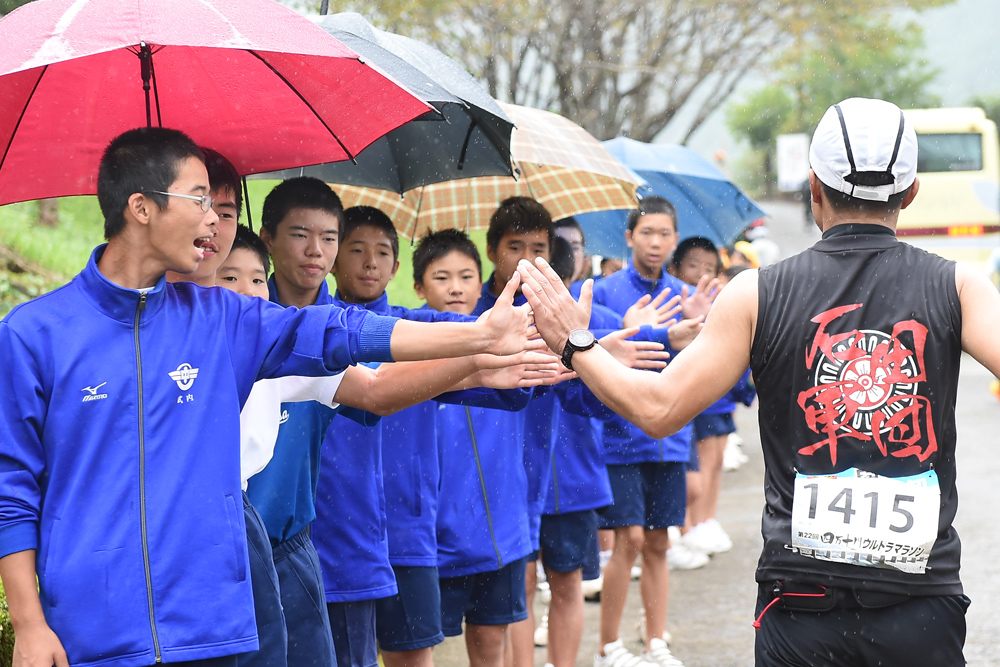
Eventually I made it, rain coming down hard now, and feeling very sorry for myself. There are not a lot of transport options along the Shimanto course, though, and so as I flopped down onto a bench under the volunteers' rain tarp, I tried to figure out how I was going to make it over the last 28K. Refuelling, I stuffed seven pieces of pound cake into my mouth and downed seven cups of tangerine slices in syrup, washed it all down with a cup of Amino Vital, and felt like a new man.
Get that finisher's medal
Just kidding. I still felt awful, but I got up anyway hoping the food would kick in after 10 minutes or so. Having completely run out of gas I knew that it would take days to get my cells topped up again, but I was hoping I had ingested enough fuel to get me to the finish. This proved to be the case. I began running – if you could call it that – at what was probably 5:45 per kilometre, reading the number on each distance post as I passed, and subtracting from 100 to get my magic number.
With 15K to go I told myself I would be finished in an hour and a half, and at roughly that point I saw that I had been running for roughly eight hours. My target time. And "only" 15K to go.
As I ran, I hoped against faint hope that I would see Clive's back loom out of the rain, and that I would be able to run in with him to the finish, but no chance of that. He was long gone. I clicked past 90K, and as a long-time track runner I began counting down the laps in my mind as I closed in on the finish. I passed 95K and I was passing a few runners I had seen hours earlier; now they were in the middle of their own bonks, walking or jog/walking to the finish as best they could.
Made it
Close to the finish area I was cheered by dozens of townspeople, sheltering from the rain in shop fronts, and now I was running again, really running, to get across the line and get it over with. As I entered the finishing straight the rain was hammering down and I crossed the line in 9:44:47, good for 50th overall out of only around 850 finishers.

Clive had finished superbly in 9:28:18, in 29th place, and just under his target time of 9:30. He had run a personal best time for 100K and also, astonishingly, for 50 kilometres. He said he had run in fear over the final 20K, hoping I wouldn't pull alongside, and then pull away. No worries about that.
I had finished almost two hours slower than I'd hoped, nearly every minute of which I could account for between the 67 and 72 kilometre marks. I finished disappointed, but determined to try my hand at another ultra. And I finished damned glad that I had finished.
I had made a novice mistake, observed the veteran Clive. The lesson I'd learned? Look for food at every stop. Look hard.




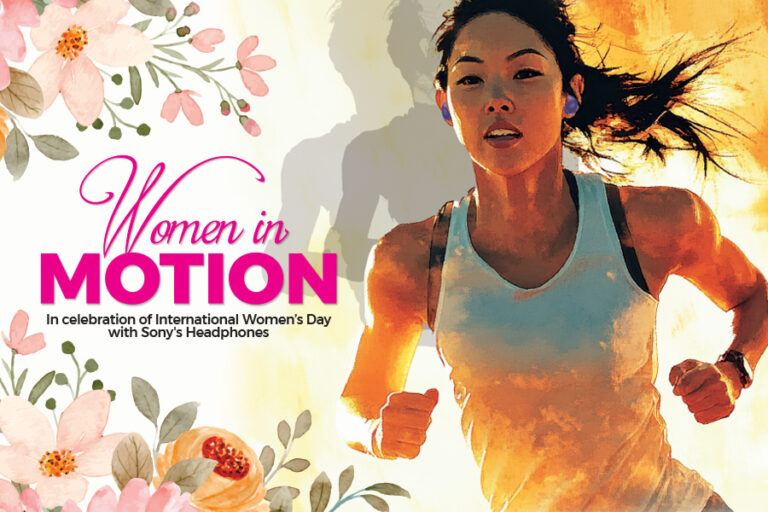

Comment (0)